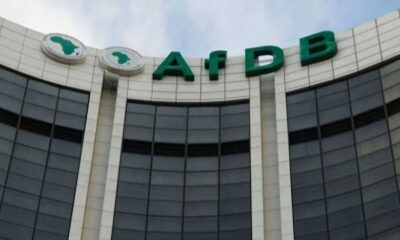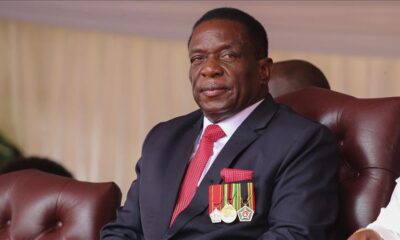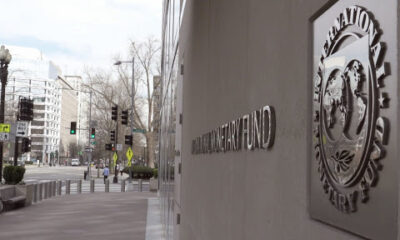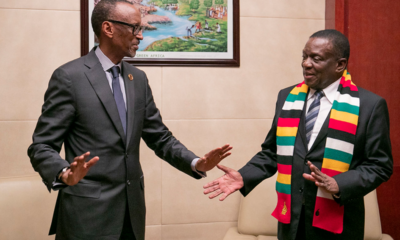THERE is no difference between the administration of former president Robert Mugabe and that of his successor Emmerson Mnangagwa when it comes to public procurement as the two republics are marred by procurement scandals, prejudicing Treasury of billions of dollars per annum, a new report shows.
DUMISANI NYONI
The report, compiled by the Zimbabwe Coalition on Debt and Development (Zimcodd), is titled “Do the More Things Change, the More They Remain the Same? Budget Transparency Comparative Analysis: First Versus the Second Republic in Zimbabwe”.
It found that both regimes constantly recorded procurement scandals like controversial tenderpreneurship deals.
“For instance, during the Mugabe administration we witnessed the Willowgate motor scandal, GMB scandal, and Ghost Workers scandal while for the Mnangagwa administration (the scandals) include the US$3.5 billion Command Agriculture, Landela-Zupco saga and the US$60 million Covid-19 Drax scandal, to mention just a few,” the report reads in part.
The report notes that another key area is poor accounting for revenues and expenditures in natural resources like Zimbabwe’s vast mineral endowment.
The country boasts of large reserves of minerals in high demand globally, such as lithium, nickel, gold, diamond and the Platinum Group Metals (PGMs) which comprise platinum, palladium, and rhodium, among others.
Zimcodd said the analysis was of the view that fully showing public extractive sector revenues in the budget documents would contribute immensely to transparency, public participation, and monitoring. One should expect to see mineral revenues like royalties, fees and concessions as well as government receipts of company mineral revenue payments.
“Nevertheless, this was not the case during the Mugabe administration, and it remains a non-starter again in the Second Republic. During President Mugabe’s days, about US$15 billion of diamond revenues were looted,” the report says.
“If properly used through the budget, this amount would have transformed a crumbling economy and uplifted millions, especially rural folks, out of abject poverty.”
“The situation has worsened under President Mnangagwa, as his government publicly admitted that it is losing about US$100 million per month through gold smuggling alone. What if other minerals are added to the mix?” it said.
“For instance, the 2019 OAG (Office of the Auditor-General) reported that over 300 000 carats of diamond were not properly accounted for by ZMDC (Zimbabwe Mining Development Corporation).”
The report says the mining sector is losing billions annually through illicit financial flows. It says the sector falls short of transparency with respect to the awarding of mining contracts, mining claims and rights, the conclusion of private mining investment deals as well as the flow of mining revenues.
“Ironically, the Sentry Report has shown that the Mnangagwa administration through its corrupt and powerful syndicate led by Kuda Tagwirei is creating a mining empire in Zimbabwe through shadow shell games like their Kuvimba Mining House,” it says.
Zimcodd’s analysis also established that since Zimbabwe has been under the administration of the Zanu PF government with more seats in Parliament, the Parliament has rarely been afforded a chance to publicly scrutinise the executive budgets and offer amendments in an objective manner.
The system under both Mugabe and Mnangagwa administrations hqvw operated is a 100% whipping system in which members of a party vote according to their party’s given positions rather than according to their ideology, conscience or the will of their constituents.
For effective fiscal transparency, supreme audit Institutions like the Auditor-General’s Office must be afforded maximum statutory independence from the executive as well as unlimited access to relevant information, adequate resources to fulfil their audit functions and publicly report on the use of taxpayers’ money.
However, the analysis found that audit reports were not submitted to Parliament on time and regularly by both regimes.
Nevertheless, despite grey areas in both regimes, the reports noted that Mnangagwa’s regime has never dismissed the Auditor-General just to derail transparency and accountability of public finance like what was done by the late Mugabe who dismissed Mildred Chiri in 2017 before she was reinstalled by Mnangagwa in the same year.
The analysis also found a slight improvement in debt transparency under the current administration. It said the sitting government is publishing annual debt bulletins and, for the first time, the 2021 National Budget was accompanied by a public debt statement.
“Whilst this is a welcome development, the borrowing process continues to be mired in secrecy due to collateralised borrowing (resource-backed loans),” it said.
The analysis concluded that the budget process, particularly the release of budget-related documents, has slightly improved under the current regime, but most of the previous administration’s fiscal transparency struggles continue to linger in the new administration.





















